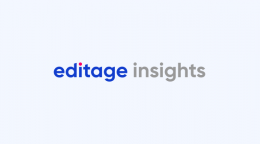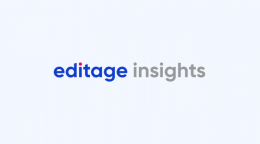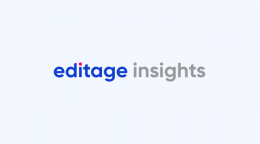How to stay updated as an interdisciplinary researcher

Interdisciplinary research integrates the knowledge and methods of discrete disciplines, allowing a multidimensional view to a problem. Meanwhile, when people from different disciplines work together on a single problem, each drawing on their disciplinary knowledge, it is called multidisciplinary research.1,2 Simply put, multidisciplinary research brings disciplines together, while interdisciplinary research fosters their integration.
Such cross-disciplinary collaborations are crucial to help solve complex real-world problems, which cannot be solved in isolation—COVID-19 and global climate change exemplify this need perfectly!
In the past few years, academia has witnessed an increasing interest in interdisciplinary and multidisciplinary research, and finding relevant literature is especially challenging for those working across disciplines.
Literature search across disciplines is daunting
In general, literature search is quite a time- and effort-intensive task. The effort and time between a search and final arrival at an article PDF translate into 5 to 15 clicks or 30 seconds to 3 minutes!3 Further, while researchers read 5–6 articles per week, they find only half of the material useful.4
It is therefore quite likely that researchers and clinicians involved in interdisciplinary or multidisciplinary projects end up spending more time and effort on literature search than others to ensure that they stay updated on multiple subject areas. They must juggle time across various activities on the job. How can they keep up with the ever-expanding wealth of information without spending valuable time and getting overwhelmed?
Finding method in the madness to stay updated on various topics
Interdisciplinary and multidisciplinary reading goes beyond the confines of a single field. This poses some unique challenges when scoping the literature. An interdisciplinary researcher might find it demanding to understand discipline-specific jargon and concepts before embarking on a literature search. Here are some tips how to stay updated on trends across multiple disciplines.
Don’t miss out on gray literature
Gray literature, such as project reports, policy papers, commercial reports, provide a wealth of non-traditional content to equip researchers with a quick understanding of a subject beyond their domain. These materials are not indexed in major databases and are not peer-reviewed, but they serve as a preliminary base to source local and global perspectives. In fact, for some specific research questions, gray literature might be the only source of information.
Search images and videos
If you find a concept particularly challenging to grasp, do not restrict yourself to reading material. Make the most of image and video searches on Google. Pictures, diagrams, charts (not necessarily from published papers), and even study material and presentations uploaded by experts can help you become more familiar with a concept.
Optimize your searches
- Use a combination of databases and generalist and specialist search engines. To familiarize yourself with discipline-specific terminology, look up generalist articles or exhaustive glossaries on the subject. These will help you identify the key terms to use to launch nuanced searches.
- Use metasearch engines (e.g., Dogpile), which simultaneously access several search engines. This is particularly useful for interdisciplinary researchers to get an overview or quick answers.
- A single term may mean different things in different disciplines. To a molecular biologist, ChIP is an assay for studying protein–DNA interactions. But a search for the term in the scientific literature might include results on semiconductors. Therefore, to make your search specific, link search terms or concepts with Boolean operators. “AND” and “NOT” operators narrow your search, cutting out unnecessary noise. The “OR” operator, meanwhile, broadens your search to ensure you don’t miss something important. This layered search is particularly useful when you are looking for articles integrating two or more diverse concepts.
- Do not forget to use synonyms and alternative terms as key words in your search:
- Scientific and common names of species (e.g., Zea mays and maize)
- Abbreviated forms (e.g., ChIP for chromatin immunoprecipitation)
- Alternative terminologies (e.g., Compositae and Asteraceae as old and revised names of a botanical family)
- American and British spellings (e.g., diarrhea and diarrhoea).
- Follow backward and forward referencing (explore the papers that an article cites, as well as papers cited by it).
Be organized
- As is the case with any field of research, it is important to manage your time and material efficiently. Use reference management software to organize your sources.
- Structure time for skimming articles versus reading them in depth on a daily basis. Prioritize your reading based on citations, buzz on social media, relevance, and immediacy.
Harness RSS feeds, email alerts, and social media
- Subscribe to RSS feeds from websites of interest (e.g., PubMed feeds on Feedly) and interdisciplinary and multidisciplinary journals.
- Sign up for Google Scholar Updates alerts and table of contents (TOCs) or citation alerts from websites of interdisciplinary journals.
- Follow top journals and subject matter experts on social media platforms like Twitter and professional networks like LinkedIn to trawl latest updates.
Make the most of networking and teamwork
One can glean insights into the latest research across various fields by actively engaging in conferences and online forum discussions (e.g., Reddit Science). Many researchers might have a “how-did-I-miss-THAT-article” moment. But therein lies the beauty of teamwork—collaborating scientists can cover considerable ground, handling different branches of the literature and sharing key papers among colleagues.
Embrace new technologies
Access to articles is largely driven by targeted searches rather than browsing. Syndicated feeds, akin to news feeds we all wake up to every morning, are something researchers can look forward to now. AI-based apps “learn” what a user looks for in their reading routine. Using advanced data-mining and search tools, they can help researchers quickly find the information they need.
A nifty new app: R Discovery
R Discovery by Researcher Life is a state-of-the-art content discovery platform for researchers. With upwards of 80 million publications in over 32,000 journals (and growing) and 5.6 million topics/categories extracted for simplifying selection and retrieval, this offering is a big plus for easing literature search for interdisciplinary researchers.
This solution facilitates a personalized, intuitive search experience. The app “learns” the user’s reading interests and finds related matches, providing relevant prompts that nudge researchers toward interesting trends on linked research. Some useful features interdisciplinary researchers can benefit from are as follows:
- Based on the user’s selected preferences, the app provides top three papers to read every day.
- It provides annotations of full texts, which let one select what to read in full.
- Its coverage includes pre-prints and conference materials, all subject areas, and all geographic areas. This all-encompassing feature is particularly important in interdisciplinary research.
- In an exciting upcoming feature, “multiple feeds” will allow a user to create multiple feeds for optimum organization of their reads by subject—something that interdisciplinary researchers will find particularly useful.
Monitoring current multifaceted scientific goings-on is challenging. Apps like R Discovery do the heavy lifting of keeping users abreast of research that matters, allowing them to spend more time on research and writing.
Looking for on-the-go access to these valuable features? The R Discovery app can be downloaded for free on your Android device from the Google Play Store or on your Apple device from the Apple App Store.
References
1. Rutting, L. & Post, G. An Introduction to Interdisciplinary Research: Theory and Practice. (Amsterdam University Press, 2016).
2. Choi, B. C. K. & Pak, A. W. P. Multidisciplinarity, interdisciplinarity and transdisciplinarity in health research, services, education and policy: 1. Definitions, objectives, and evidence of effectiveness. Clin Invest Med 29, 351–364 (2006).
3. Page, B. New venture for Mendeley co-founder Jan Reichelt | The Bookseller. https://www.thebookseller.com/news/new-venture-mendeley-co-founder-jan-r... (2017).
4. Elsevier Global Communications. Trust in Research. Elsevier Connect https://www.elsevier.com/connect/trust-in-research (2019).
Comments
You're looking to give wings to your academic career and publication journey. We like that!
Why don't we give you complete access! Create a free account and get unlimited access to all resources & a vibrant researcher community.

Subscribe to Conducting Research













